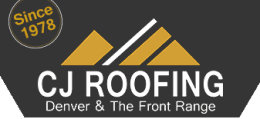The Anatomy of a Residential Roof
Ever wondered what lies beneath your shingles? Let’s take a look!
As a homeowner, and not a Denver residential roofing expert, chances are you aren’t familiar with all the ins and outs of your roof. And that’s perfectly okay! Even so, knowing the basic structure of your roof can be helpful for understanding your roofer when they’re relaying the results of an inspection to you as the homeowner.
The professionals at CJ Roofing are always standing by to solve your residential roofing problems, but we also feel that it’s good to keep our readers and customers informed. So today, we’re breaking down the anatomy of your Denver residential roofing system so that you can get to know what lies beneath your shingles.
Trusses
Trusses are like your roof’s skeleton. They form the foundational shape of your roof and support the entire construction. The orientation of these trusses can vary greatly, but all configurations are designed to provide your roof with the structural integrity to support everything else that will cover this critical component.
Decking or sheathing
Both decking and sheathing are terms that refer to the same component of your roof. This part of your roof is next up from the trusses, providing a surface for the underlayment and the exterior roofing material. Types of decking can vary, but typically decking will be made of sheets of plywood.
Underlayment
While not all roofs have an underlayment, it’s common for many building codes to require this component. Underlayment is a thin sheet of material, typically made of an asphalt-saturated felt, rubberized asphalt, or other synthetic material. Your roof’s underlayment is applied over the decking to provide an additional layer of water- and weatherproofing beyond just the decking and shingles.
Shingles (or other roofing material)
Whether your home has underlayment or not, the exterior part of your roof’s surface is next up. Most Denver homes use asphalt shingles as their residential roofing material of choice, but some can have materials such as clay tile, wood shake, metal, or slate. Whatever material your home uses, this exterior layer serves to both protect the interior of your home and lend your roof a signature look.
Flashing
Thought we were done? Nope! There are still a few critical parts of your roof left to cover, and flashing is one of the most important. No matter what type of roof you have, intersections between different parts of your roof create the potential for water to penetrate. Flashing is a waterproof material installed over these intersections to prevent just this issue. Flashing will also be installed around things like chimneys and vents to provide further waterproofing.
Drainage system
While water will naturally run off of your roof due to its pitch, an effective gutter or other drainage system ensures that water flows only where you want it to. Gutters channel water along the fringes of your roof to a downspout, which will then direct water away from your home. Your gutters aren’t affixed directly to your roof, either; wooden boards called fascia are installed beneath the trusses of your roof for just this purpose.
Ventilation system
The final key component of your Denver residential roofing system is ventilation. You may not realize it, but airflow is actually critical to making sure your roof does its job properly. Without effective ventilation, there may be differences in temperature across your roof, which can lead to ice dams. Further, airflow helps avoid moisture buildup in your attic, which can otherwise lead to mold, mildew, and rot.
CJ Roofing: Your Denver Residential Roofing Experts!
We hope you learned something new from today’s blog post! As you can see, your roof is much more than just the shingles that you see from the outside. An effective residential roof is actually a complete roofing system made up of several layers and key components that keep the worst Denver weather at bay.
If you notice a problem with any of these major elements of your roof, call on the seasoned professionals at CJ Roofing to fix it! With more than 40 years of residential roofing experience right here in Denver, we know how to keep each and every part of your roof in perfect health. Contact us today!
